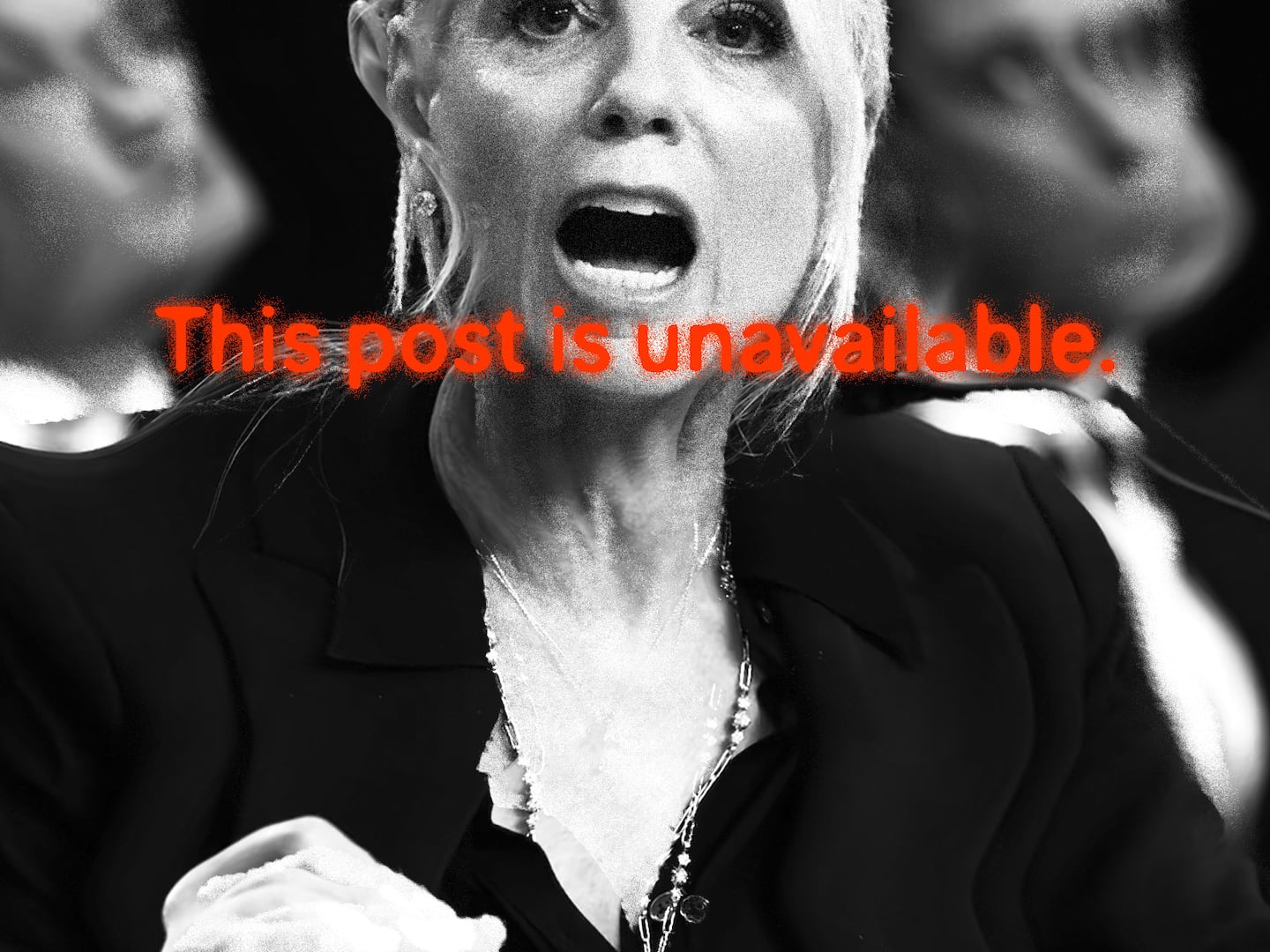
Here’s the dirty little secret of author book tours: Very early on—usually after the fifth or sixth interview—every author turns into a cyborg. We get asked the same 10 questions, quite reliably, by every single interviewer (the hands-down favorite being “Where do you get your ideas”; I’ve started answering, “Schenectady”). We become Sarah Palin with her “thanks, but no thanks, to that bridge to nowhere.” Our rehearsed and honed and memorized soundbites become tape loops. We can do interviews while simultaneously solving a plot problem on our next book. I probably shouldn’t admit this.
I was reminded of this when I spoke the other day to Stephen L. Carter, the author of the new novel Jericho’s Fall and a professor at Yale Law School. His first novel, you may remember, was the bestselling Emperor of Ocean Park. Stephen and I have never met, although we’ll be doing a panel together this fall on espionage and fiction. (When I was first invited to do this panel, at the new Boston Book Fair, I thought, huh? Isn’t that the Yale Law guy who writes big weighty multilayered novels about race issues? How about Alan Furst or David Ignatius or something? Can’t we get Freddie Forsyth? Until I learned that Carter’s latest book is in fact about the CIA and the world of intelligence.)
Carter revealed that he’d written this new novel in eight weeks. This I did not want to hear. Doesn’t this guy have to go to faculty meetings and grade exams too?
Carter was in Philadelphia, on his way to Washington, having just done Boston, a dozen more cities spread out before him. He was in a car on his cellphone. He’d just been on NPR talking about his Yale classmate Sonia Sotomayor (though they threw in a few stray plugs for his new book; you take what you can get on tour). So it took me a while to penetrate the sound wall of his tape loops. It helped that I do exactly the same thing, so I quickly recognized the syndrome.
Our conversation was going along quite well, until he said something that made my blood run cold.
He revealed, almost in an aside, that he’d written this new novel in eight weeks. This I did not want to hear. OK, Forsyth wrote The Day of the Jackal in 35 days, but still... doesn’t this guy have to go to faculty meetings and grade exams too? This was beyond infuriating. “This book came to me late last summer, early fall, when I was supposed to be writing another book,” he told me. “The story just came to me, and the tug was irresistible.”
Still: eight damned weeks?
Read an excerpt from Jericho's Fall

“Well, this one just came faster. My first three novels were agonizing to write. This one, there was never any agony. It was never exhausting.” Carter says that maybe one reason is that, for the first time, after four novels, he’s only just now beginning to think of himself as a real novelist, rather than a law professor who dabbles in fiction. He’s more confident in his craft. Or maybe it’s that this one was shorter than his others (350 pages, lots of white space, compared to Emperor of Ocean Park’s 672). Or that the plot of this one is much less complex (“people always refer to my novels as multilayered,” he said, employing audible scare quotes. “This one’s a straight line.”). But maybe the main reason he was able to write so fast, he says, is that writing novels, like teaching contracts, just gets easier the more you do it: “Most things you do, unless you’re a complete dope, you get better at it. And I’m getting better, more efficient, at the writing process.”
Just don’t tell that to Elmore Leonard, who’s written better and far more novels than either of us, and recently said, “After 58 years you’d think writing would get easier. It doesn’t. If you’re lucky, you become harder to please.” (Maybe because Dutch Leonard still uses a ballpoint pen?) I didn’t press the issue: It’s like the Wile E. Coyote Law of Physics: When you run off a cliff into midair, if you don’t look down, you won’t fall.
The plot of Jericho’s Fall centers on a dying former CIA director, Jericho Ainsley, who summons an old lover to his deathbed, thus embroiling the woman in a dangerous conspiracy. Ainsley, who was forced out of the Agency because he was exhibiting signs of mental instability, calls to mind at least one historical antecedent: the legendary CIA spy-catcher, James Jesus Angleton, whose paranoid suspicion that the CIA had been penetrated by a high-level mole tore the CIA apart in the 1960s and 1970s, inflicting damage it still hasn’t recovered from. I knew Angleton, though not well, and I had always found him extremely persuasive, even seductive, one on one. It was easy to believe his theories. Carter says he based Ainsley on the notion of Angleton, in a proximate sense at least, but also on Frank Wisner, the head of the CIA’s Clandestine Services in the late 1950s, who was carried out of Agency headquarters in a straitjacket.
Carter’s interest in the CIA, I suspect, is rooted not in any deep familiarity or fascination with the intelligence community: He interviewed no former CIA officials, though he did read some of the important books like Tim Weiner’s essential history of the CIA, Legacy of Ashes. His real obsession, it seems, is with men of power and stature who are deeply flawed. In one book it’s an eminent judge, in another a university professor. I speculated that Carter’s interest in powerful Establishment figures may stem from his being, as a black, an outsider in college (Stanford) or Yale Law School, or even on the law school faculty (where five out of 47 tenured professors are black—not a bad ratio compared to national black population of 13 percent). He bristled somewhat at my amateur psychoanalysis and argued that it’s far more the fact that he’s “an open and unapologetic Christian” that marks him as an outsider at Yale.
Unlike each of his other novels, this is not a book about race (or, as he puts it, “the darker nation”). In fact, the protagonist, Rebecca DeForde, the old CIA director’s former lover, is not once described physically, which I admit I found odd. So most reviewers have assumed that she’s white: After all, white is always the default setting. But Carter says this was deliberate. He tangled with his copy editor over this, but he stood firm, because, he says, he wanted to keep that mysterious. Also, he says, figuring out how to describe her physically without thereby identifying her race was “more work than I cared to do.” He says he’s even planted clues throughout the book that tip off an alert reader. I’m not entirely sure I understand his logic, if, as he claims, since her race “has no bearing on the book.” But far be it from me to question what another author does and why. Lit crit types call this the intentional fallacy. I call just it irrelevant.
I mentioned that, when I first began writing fiction I encountered some, um, discomfort among my academic colleagues (I was a grad student at Harvard’s Russian Research Center and taught writing at Harvard for five years, a position that at the time was so low on the totem pole it was below ground.) Had he met with any envy or even derision from fellow faculty members? “This is not a bunch of people easily made to envy,” he said. “These are very accomplished people who have achieved great things. When I go out to lunch with my colleagues, they don’t talk about my novels. Most of them see my novel-writing as an indulgence, a peccadillo.” (And of course the Yale Law School faculty includes Jed Rubenfeld, the very talented author of a suspense novel, The Interpretation of Murder.) He’s unconcerned that he might someday face a Senate confirmation hearing and have some senator acidly read aloud the more salacious passages of his books, because, he says, “I don’t want to be nominated for anything anyway.” (Also, there are in fact no smutty passages in his novels. Not even close.)
There has been some grumbling among early reviewers that Carter’s latest may be faster but it’s not as deep—more thrilling, less filling. Carter dismisses this criticism by insisting that this more thriller-like novel was in some ways an experiment, deliberately different from the gravitas and multilayered family sagas he’s done to date.
Anyway, he never reads his reviews, good or bad. He says he never even read David Owen’s glowing profile of him in The New Yorker. So when we do finally meet in person this fall, I can be fairly certain he’ll have no complaints about anything I’ve said here: He’s not going to read it either.
Plus: Check out Book Beast, for more news on hot titles and authors and excerpts from the latest books.
Joseph Finder is The New York Times bestselling author of numerous novels including Power Play, Killer Instinct, and Vanished (coming August 2009). Visit his Web site.






